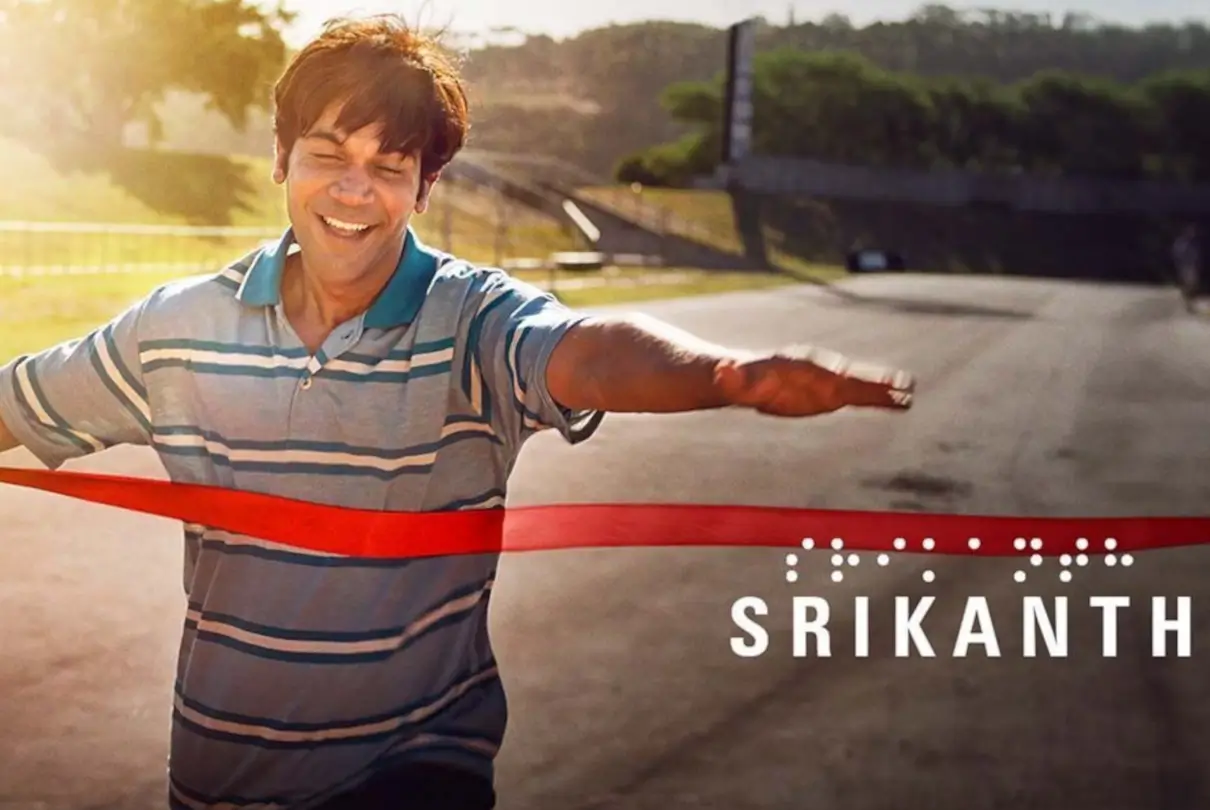Physical Address
304 North Cardinal St.
Dorchester Center, MA 02124

In Tushar Hiranandani’s latest biopic “Srikanth,” Rajkummar Rao delivers a tour de force performance as the titular character, portraying the inspiring journey of Srikanth Bolla, a visually impaired individual with grand aspirations. The film chronicles Srikanth’s relentless pursuit of his dreams against all odds, shedding light on societal biases and systemic challenges faced by people with disabilities.
Born in July 1992 to Damodar Bolla (Srivinas Beesetty) and Venkatamma Bolla (Anusha Nuthula) in Machilipatnam, Andhra Pradesh, Srikanth’s arrival is met with both joy and despair. Named after his father’s favorite cricketer, Krishnamachari Srikkanth, the family’s initial elation turns to despair upon discovering Srikanth’s blindness. Despite the societal pressures and the initial shock, Srikanth’s parents stand by him, refusing to succumb to societal expectations of pity or rejection.
From his formative years marked by bullying and discrimination to his admission to a special school for the visually impaired in Hyderabad, Srikanth’s journey is characterized by resilience and determination. Under the guidance of his teacher, Devika (Jyothika), Srikanth not only excels in academics but also learns to navigate the world independently, challenging preconceived notions of disability.
Rajkummar Rao’s portrayal of Srikanth is nothing short of remarkable, capturing the character’s indomitable spirit and unwavering resolve with nuance and authenticity. Despite occasional narrative lulls, Rao’s compelling performance anchors the film, infusing each scene with emotional depth and sincerity. His portrayal evokes empathy and admiration, portraying Srikanth as a symbol of strength and resilience in the face of adversity.
The film delves into the complexities of the Indian education system, highlighting the inherent biases and limitations faced by individuals with disabilities. Srikanth’s battle to pursue science after class 10 serves as a poignant commentary on the systemic barriers that hinder the aspirations of differently-abled individuals. However, with unwavering determination and legal intervention, Srikanth defies the odds, securing admission to prestigious institutions abroad.
While the first half of the film captivates with its pace and intrigue, the second half falters slightly, losing momentum and veering into character glorification. Despite this narrative imbalance, the film remains compelling, offering insights into Srikanth’s personal and professional triumphs and tribulations.
Jyothika delivers a restrained yet impactful performance as Devika, Srikanth’s mentor and guiding light. Her portrayal complements Rao’s, adding depth and emotional resonance to their on-screen dynamic. Sharad Kelkar shines as Ravi Mantha, Srikanth’s friend and confidant, providing unwavering support and understanding throughout his journey.
“Srikanth” effectively highlights society’s lack of empathy and understanding towards people with disabilities, shedding light on the biases prevalent in educational and employment opportunities. The film’s portrayal of Srikanth’s resilience and determination serves as a powerful reminder of the human spirit’s capacity to overcome adversity.
Despite occasional narrative flaws, “Srikanth” is a heartwarming tale of hope and perseverance, leaving viewers inspired and uplifted. With its blend of humor, emotion, and social commentary, the film offers a poignant exploration of the challenges faced by differently-abled individuals while celebrating their inherent strength and resilience.
In conclusion, “Srikanth” is a cinematic triumph, anchored by Rajkummar Rao’s stellar performance and enriched by its powerful storytelling. It stands as a testament to the indomitable human spirit and the transformative power of perseverance and self-belief.